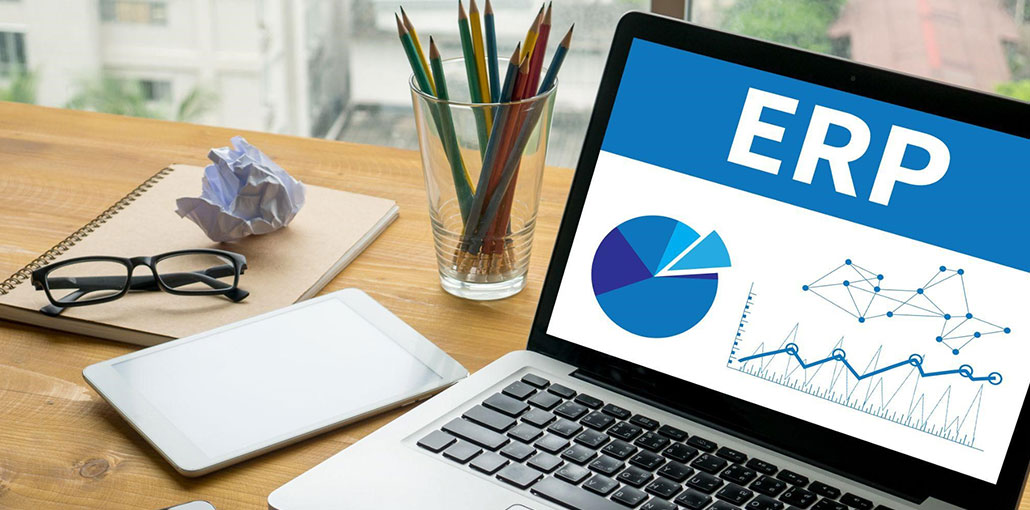With the rise of cloud-based ERP, businesses today have access to an unprecedented variety of ERP solutions. Many of these options are general ERP systems designed to be adaptable to the needs of businesses in a variety of different verticals. However, these software systems’ industry-neutral approach is a drawback for many companies, particularly ones in highly specialized industries.
Such companies often choose industry-specific ERP solutions instead. An industry-specific ERP software suite is specially designed to meet the needs of businesses in a particular vertical. These ERP systems provide powerful and targeted tools that off-the-shelf generic ERP platforms often can’t match. In this guide, we’ll examine five reasons why.
Industry-specific ERP solutions often require less customization.
Industry-specific ERP solutions typically include key features right out of the box. For example, a food ERP suite will come equipped with more detailed batch and ingredient-tracing capabilities than most industry-neutral ERP platforms. That can save significant capital for a business, as the customization process is often a major driver of additional costs and delays in ERP implementation projects.
In generic ERP suites, the off-the-shelf software often won’t have the specific features that a highly specialized business needs. For example, a food manufacturing business that chooses a generic ERP solution might have to wait months for the vendor’s developers to integrate an ingredient-tracking module, or they may end up using bolt-on software that doesn’t integrate perfectly.
Also read: 10 Benefits of ERP Software in Manufacturing Industry
Customizations may still be necessary on an industry-specific ERP solution. However, the tweaks are generally smaller since the starting package is already closer to the business’s needs. Any business that prioritizes turn-key implementation thus has good reason to seriously consider industry-specific ERP software like this one: https://www.inecta.com/produce
Industry-specific ERP solutions usually still contain all of the basic tools required to run a business.
Think of industry-specific ERP as a “plus” solution. A business rarely loses functionality by choosing an industry-specific ERP software package over a generic one; almost every ERP suite includes basic tools like inventory control systems and accounting functions. Industry-specific ERP packages, however, add other tools on top of these basic essentials to create an all-in-one solution.
Of course, it’s still crucial to look at the overall features included in any ERP solution. Some ERP suites, for example, don’t include built-in supply chain management or customer relationship management modules. Fortunately, today’s ERP market contains so many different options that businesses can almost always find the right system package that includes the all capabilities they need.
Industry-specific ERP solutions address the unique challenges of each industry.
Industry-specific ERP suites are designed specifically to include powerful problem-solving tools for their designated verticals. That’s essential because addressing key friction points and bottlenecks in business processes should be one of the core goals of any ERP project. Choosing an industry-specific solution is one of the most effective ways that businesses can address their weaknesses head-on and pursue proactive data-driven solutions.
A manufacturer that often struggles with incorrect bills of materials, for example, needs an ERP solution with robust part sourcing and BOM management features. A generic ERP system may or may not offer these features, or may not offer them in sufficient depth if it does include them. An industry-specific manufacturing ERP solution, on the other hand, will not just include robust materials management systems, but prioritize them.
Industry-specific ERP solutions offer more specialized compliance tools.
ERP systems of all kinds can offer powerful data collection and record-keeping tools for streamlining a business’s compliance functions. However, manufacturing businesses in heavily regulated industries often find that industry-specific ERP solutions are the best option for integrating complex compliance processes into everyday workflows.
Pharmaceutical manufacturing is a prime example. Enterprises in this sector must follow the FDA’s strict guidelines on facility safety and cleanliness. Few off-the-shelf generic ERP suites have the built-in compliance infrastructure that pharma manufacturers need. While ERP manufacturers can and do develop customized solutions for specialty industries, these typically can’t match the way that Pharmaceutical specific ERP system is built for FDA compliance from the ground up.
That’s because industry-specific ERP solutions have been created with years of input from both end-users and industry compliance experts. The software is already compatible with the rigorous data collection and management capabilities to meet industry standards of required compliance, along with many other specific needs of the given industry.
Also read: EIM: Definition of Enterprise Information Management
Industry-specific ERP solutions offer access to consultation and tech support from experts in the field.
The value of industry experience on the vendor’s end goes farther than the software’s off-the-shelf features. An ERP manufacturer with many installations in a specific industry will have a sales and implementation team that understands the specific demands of that industry.
It’s especially important for a manufacturing business to work with an ERP vendor who “speaks their language” when customizing an enterprise software package. If they don’t have a long list of happy customers in your industry, look for a different system.
In addition, working with an industry-specific ERP vendor can provide a much smoother experience when it comes to troubleshooting and support. Vendors may struggle to be effective problem-solving partners in an industry that the vendor isn’t familiar with.
This can lead to communication breakdowns or an over-reliance on consultants and unnecessary customizations, both of which are very costly. We’ve seen too many manufacturers talked into an ERP system that has no fit or specificity for their industry, only to have them go through years of frustration and costs, with little benefit.
Compare that with an industry-specific ERP vendor, who will employ seasoned experts with the right know-how to bridge the gap between your industry and the vendor’s software engineers. These companies are much better equipped to provide the clarity and communication that’s so important for the ERP implementation process.
General-purpose ERP systems do have some advantages of their own. They can be an economical alternative for businesses that don’t need specialized features, or they can provide a suitable platform for a business that wants to heavily customize its ERP solution.
For companies in niche industries, however, an industry-specific ERP solution is often the best choice. If your business hasn’t explored industry-specific ERP solutions yet, it’s worth doing an ERP comparison for specific solutions in your industry vs. the standard general-purpose ERP suites to be sure you are selecting your next system wisely.










Leave a comment